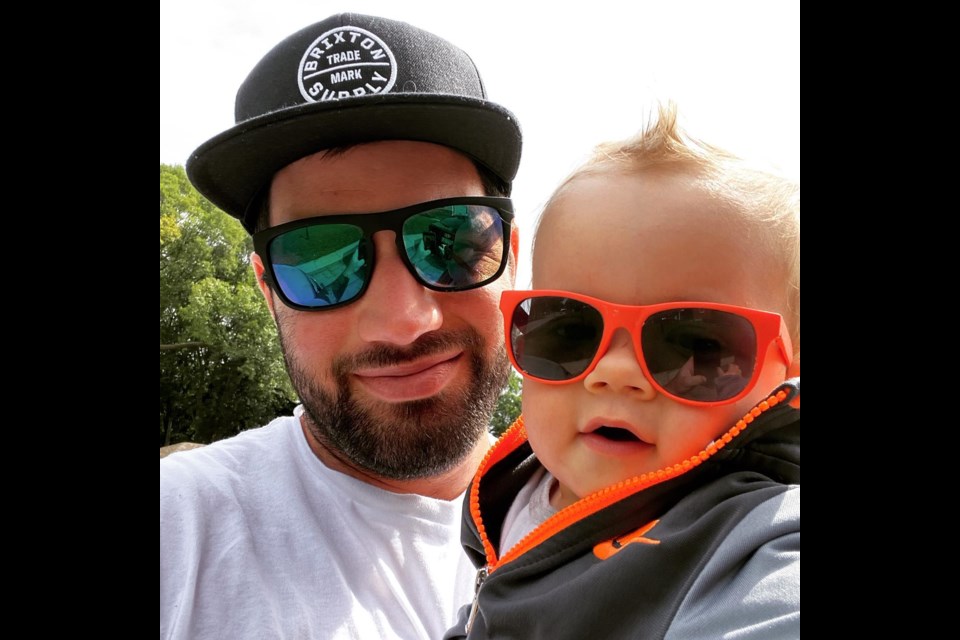It’s been a tough year for Kelsey MacGregor and her family, who have spent the last 10 months coming to terms with the death of her brother Corey last winter following a drug overdose.
After more than a decade of battling mental health issues and addiction in silence, her older brother died in February 2021, just a few weeks after his 28th birthday — and only a few months after having completed a 28-day rehabilitation program.
"His addiction began with experimentation with Oxycontin and progressed to stronger opioids," she says.
Although her brother had many “ups and downs” following his treatment, Kelsey says he stayed clean for several months and seemed to be on a path to recovery.
Then, on Feb. 20, a day Kelsey described as a “very normal day," the worst happened: Corey used drugs and died from an overdose at home.
“He was in great spirits and was out running some errands, picking up some tools for his job. He was planning on going snowboarding the next day (and) was getting wax for his board,” she tells BarrieToday. “For whatever reason, he chose to use that day and we lost him instantly.”
The family has yet to receive the full toxicology, but they believe it was fentanyl poisoning.
"We don’t like the term 'overdose', as he did not 'overuse' a drug — it was a poisoned dose," Kelsey says.
It’s no secret Barrie is experiencing an opioid crisis, with an overdose rate eight times the provincial average.
Kelsey says her brother was, unfortunately, one of the many individuals who fell victim to the toxic drug supply making its way around the Simcoe-Muskoka region.
“It was a relapse, which happens… and it’s all part of recovery, but unfortunately the drugs on the street at the moment are not very forgiving. He was really strong, but I just think the addiction sometimes can be stronger," she says.
Up until his death, Kelsey and her parents had been dealing with Corey’s addiction privately, as per her brother’s wishes, but since then, she says they’ve realized the importance of getting support — both for the person with the addiction and for their family.
“He didn’t want people to know, not even members of our own family, so when we shared the news he’d passed, it was a huge shock to a lot of people," she says. "There was a lot of stress on my parents during that time. We were there to support him, but it’s hard when you are doing that in secret.
“There’s a lot of shame surrounding the topic and then there’s a lot of guilt on the family when you have a child or a sibling with an addiction, (because) you wonder what more you could have done to help," Kelsey adds. "It simply boils down to the fact that addiction is a disease and sometimes, no matter how hard you try, it’s simply not enough.”
One of the ways the family is coming to terms with their tragic loss is by publicly sharing Corey’s story as part of The Untold Documentary, a series created by Kelsey’s employer, Jack.org, Canada's only charity training which works to empower young leaders to revolutionize mental health in every province and territory.
The series was created to bring light to topics such as men’s mental health, bipolar disorder, eating disorders and addiction, many of which are still highly stigmatized, Kelsey says.
While many of Kelsey's colleagues were aware she had lost her brother last winter, none of them were aware of how he had died, so when she decided to open up and share the story, her colleagues asked if she and her family would be willing to be part of the documentary.
“We decided this was a way we could try and give back, help others and raise awareness… and to show how amazing my brother was in his life, and how he was a person with addiction — but that was not all of him," she says. "He was an amazing son and brother, father to his son and partner and a great friend.
"That’s how we wanted him to be remembered, and we wanted to help people not struggle in silence. You need support to fight these things.”
Corey expressed a desire to help people when he got better, Kelsey says, and they felt sharing his story in this way could help others who are struggling the same way he did.
“He really wanted to be an inspiration that he’d gotten better and had fought this disease… and we really wanted to try, and still in some way, have his story be able to help others and increase these conversations," she says.
Filming the episode also unexpectedly served as a cathartic experience for all of them.
“It was really good to sit down to reflect on everything, and saying our piece about how we were feeling really helped with our grief,” Kelsey says.
Watching the footage and remembering the good times they had as a family was also very healing, she adds.
Seeing the documentary come to life, while difficult, also brought them a feeling of pride, knowing that sharing her brother’s story with the world could help others.
“It’s such a vulnerable thing for our family that we were dealing with in secret that we were now putting out on such a platform, but we did it to help others and that’s what I kept reminding my parents and myself of when the process of it coming out was feeling overwhelming," Kelsey says.
"This is what Corey would have wanted and we are doing it for him.”



